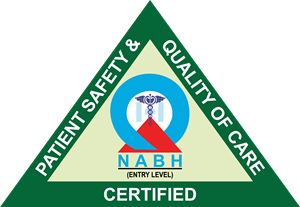Vasoconstriction & Increased Blood Pressure
When temperatures drop, the body’s natural response is to preserve heat. To achieve this, blood vessels constrict in a process known as vasoconstriction. While this helps conserve body heat by reducing the amount of blood flow to the skin and extremities, it also has significant consequences for the cardiovascular system.
The narrowing of blood vessels leads to an increase in blood pressure, which places additional stress on the heart. For individuals with existing heart disease, this can be particularly dangerous, as the heart is already working harder than usual to maintain proper circulation. Increased blood pressure can damage the arteries and increase the likelihood of plaque rupture, leading to blood clots that may cause a heart attack.
Higher Blood Clotting Risk
Cold weather has a direct impact on the blood’s viscosity, making it thicker and stickier. This increase in blood clotting is the body’s response to prevent excessive bleeding in cold conditions, but it also raises the risk of clot formation inside blood vessels. If these clots block the flow of blood to the heart, they can lead to a heart attack. Individuals who already have narrowed or damaged arteries are particularly vulnerable to this heightened clotting risk during the winter months.
Reduced Physical Activity
During colder months, people tend to be less physically active. The temptation to stay indoors and avoid outdoor exercise, combined with the discomfort of the cold, leads to a more sedentary lifestyle. Regular physical activity is a key factor in maintaining heart health, as it helps to lower blood pressure, manage weight, and improve overall cardiovascular function. The lack of exercise during winter months can weaken the heart and increase the likelihood of heart attacks, especially in those who are already at risk.
Additionally, colder weather often discourages people from engaging in activities such as walking, which can have beneficial effects on cardiovascular health. This reduced activity not only contributes to weight gain but also negatively impacts circulation, further burdening the heart.
Winter Stress & Holiday Indulgences
The winter season also coincides with the holiday period, a time often associated with stress, overeating, and indulging in foods high in fat and sodium. Increased alcohol consumption, heavy meals, and erratic sleep schedules can all contribute to rising blood pressure and cholesterol levels, placing additional strain on the heart.
The combination of these factors—stress from the holidays, unhealthy eating habits, and disrupted sleep—can trigger heart attacks in vulnerable individuals. For those with pre-existing heart conditions or risk factors such as high blood pressure, diabetes, or obesity, the impact of these seasonal lifestyle changes can be particularly dangerous.
Impact of Winter on Existing Heart Conditions
For individuals with heart conditions like coronary artery disease or heart failure, the winter season can be especially challenging. The cold weather can trigger the narrowing of already weakened blood vessels, while the body’s increased energy demands during the winter (due to thermoregulation and physical exertion) can put extra pressure on the heart.
Moreover, some individuals may fail to recognize the early warning signs of a heart attack during the winter, attributing chest pain or discomfort to the cold or to other non-cardiac issues. This delay in seeking medical attention can exacerbate the severity of a heart attack, leading to poorer outcomes.
The Role of Infections & Respiratory Illnesses
Winter is also the season for respiratory illnesses like the flu, pneumonia, and bronchitis, which can further complicate heart health. Respiratory infections increase the demand on the heart and can exacerbate underlying heart conditions. Infections such as the flu are particularly concerning, as they cause inflammation and an increased heart rate, both of which can trigger a heart attack in susceptible individuals.
Additionally, the stress caused by battling an infection can increase blood pressure and cause blood clotting, compounding the risk of cardiovascular events during this time.
Steps To Minimize The Risk Of Heart Attack In Winter
Given the increased risk of heart attacks during the winter months, individuals, particularly those with heart disease or other risk factors, should take preventive measures to protect their heart health. Here are some key steps to reduce the risk:
- Dress Warmly: Properly layered clothing can help the body retain heat, preventing the negative effects of vasoconstriction.
- Stay Active: Engage in regular physical activity indoors to help maintain heart health. Even light exercises like stretching, yoga, or walking on a treadmill can make a difference.
- Manage Stress: Avoid excessive stress during the holiday season and practice relaxation techniques such as deep breathing, meditation, or mindfulness.
- Eat Heart-Healthy Foods: Reduce the intake of fatty foods, salt, and alcohol. Opt for heart-healthy options like fruits, vegetables, lean proteins, and whole grains.
- Get a Flu Vaccine: Prevent respiratory illnesses like the flu, which can increase the risk of heart problems.
The winter months pose unique challenges to heart health, but with awareness and proactive measures, it’s possible to reduce the risk of heart attacks. By understanding how cold weather affects the body and taking steps to minimize its impact, individuals can better protect their cardiovascular health during this season.
Jinkushal Cardiac Care & Superspeciality Hospital has a dedicated team of experienced cardiologists in thane and cardiac surgeons. The our Advance Cardiac Hospital hospital in Thane is equipped with a state-of-the-art CATH LAB for accurate diagnosis and treatment of heart diseases. For world-class cardiac care, visit our hospital.


